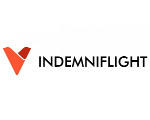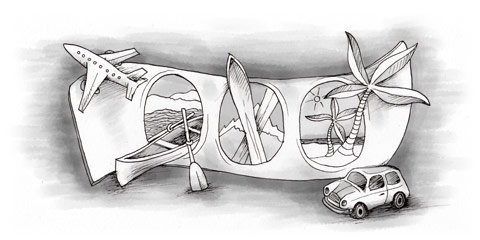Diesel fuel is called diesel (pronounced ‘dee-ezel’) or gazole or gasoil (both pronounced ‘gazwal’) and is available at all service stations. To help prevent errors, petrol pumps and pipes are colour coded green for unleaded, red for 4-star and black for diesel. The nozzles of 4-star petrol pumps are also usually larger than those of unleaded pumps and won’t fit the petrol filler hole of a car fitted with a catalyser.
Nevertheless, pay attention, particularly when a garage attendant is filling your car. Liquid petroleum gas (LPG) is also available and there are around 1,800 petrol stations offering LPG ( GPL or Gépel), particularly on motorways (a free map is available from petrol stations). Note that the general word for fuel is carburant and petrol is essence; fuel (or fioul) is heating oil, and pétrole is paraffin or oil (the black stuff that comes out of the ground).
Cost of fuel in France
The cost of fuel has risen dramatically in recent years, although prices vary considerably (by up to €0.15 per litre) with the area, town and the petrol station. The cheapest source is usually hyper/supermarkets, while rural petrol stations are the most expensive. The costs per litre in September 2006 were around €1.10 (diesel), €1.25 (ordinary unleaded) and €1.30 (premium unleaded).
LPG costs around €0.85 per litre. To help tourists and travellers on motorways locate inexpensive petrol, petrol stations within 10km (6mi) of a motorway are allowed to advertise their prices on the motorway, and a leaflet called La Carte de l’Essence Moins Chère, showing supermarkets a short detour from main routes, is available from French Government Tourist Offices.
Self-service petrol stations ( libre service) are common and include most motorway and supermarket stations. Manned petrol stations are more usual in small towns and villages. To ask for a fill-up, say ‘ le plein s’il vous plaît’. Service may include cleaning your windscreen and checking oil and tyre pressures; tips aren’t expected, although they won’t be refused! When paying at self-service petrol stations, simply tell the cashier your pump number. Debit cards and major credit cards are accepted by most petrol stations.
There are 24-hour petrol stations on motorways, and some other stations have automatic pumps accepting debit or credit cards, which can be used when the station is open (to save queuing) or closed. Insert your card (you may need to lift a flap – Soulevez le volet) and you will receive the following instructions, sometimes on an LCD display, sometimes by recorded message. (Some automatic pumps have instructions in English as well as French.)
- Sélectionnez votre carburant: ‘Choose your fuel.’ Press the button corresponding to the type of fuel you require.
- Validez ou choix autre carburant: ‘Confirm or choose other fuel.’ Press the button marked ‘ Val’ or change your choice of fuel.
- Composez votre code confidentiel et validez: ‘Enter your PIN and confirm.’ Enter the four-digit PIN for your card and press ‘ Val’.
- Impression ticket?: ‘Do you want a receipt?’ Press ‘ Oui’ or ‘Non’.
- Servez-vous jusqu’à € ...: ‘Serve yourself to a maximum value of €...’ Remove the nozzle and fill up without exceeding the value indicated. Replace the nozzle and your card will be returned to you. If you’ve requested a receipt, this will be printed automatically; you don’t need to reinsert your card.
You may see Veuillez patienter between instructions, which means ‘Please wait’. You may also be asked Avez-vous une carte client?, which means ‘Do you have a customer loyalty card?’.
Most petrol stations have toilets, sometimes located outside the main building, when it may be necessary to ask an attendant for the key. Many petrol stations provide services such as a car wash, vacuum cleaners and air and often have a shop selling confectionery, canned and bottled drinks and snacks, which are usually expensive, newspapers and magazines, motoring accessories and sundry other items. Routine servicing and repairs are also carried out at some petrol stations.
This article is an extract from Living and working in France. Click here to get a copy now.


